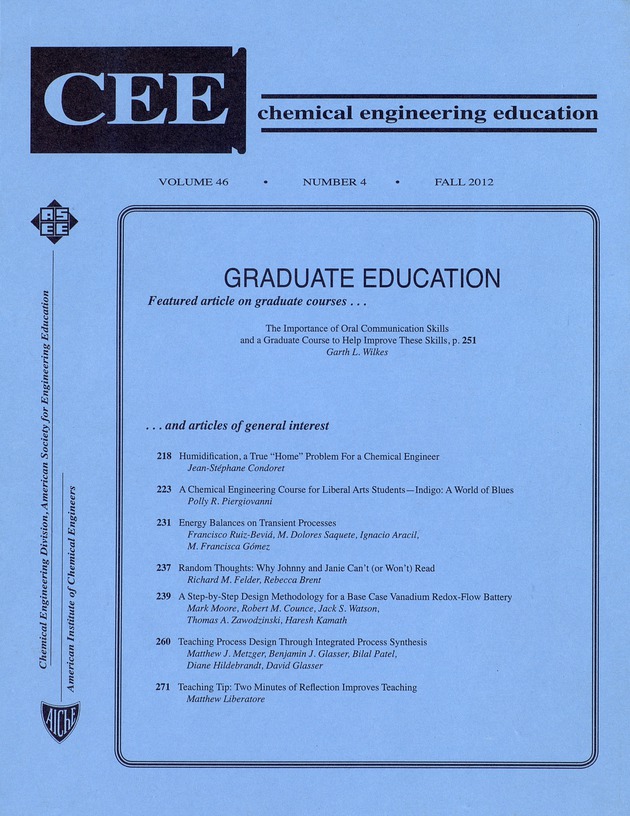Teaching Process Design through Integrated Process Synthesis
Abstract
The design course is an integral part of chemical engineering education. A novel approach to the design course was recently introduced at the University of the Witwatersrand, Johannesburg, South Africa. The course aimed to introduce students to systematic tools and techniques for setting and evaluating performance targets for processes, as well as gaining insight into how these targets can be achieved. The main objectives were efficient use of raw materials, energy and improved environmental performance (reducing CO2 emissions). The approach is to use fundamental principles – mass, energy and entropy – to identify limits of operation or targets. Unlike the traditional approach to process design where the flow sheet is normally chosen from existing literature or from prior knowledge, the flow sheet emerges from the analysis in this new approach. The course was well received by students and allowed the students to gain a better understanding of developing processes which are efficient and have less impact on the environment.


